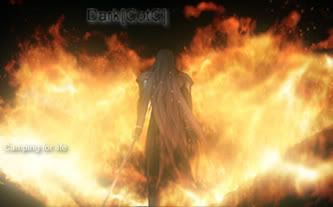NOW, A FOREWARNING TO ALL WHO DECIDE TO POST TO THIS TOPIC:
THERE ARE TWO SIDES, EACH SIDE HAS PROOF THAT SUPPORTS AND REFUTES BOTH SIDES. THERE IS NO RIGHT OR WRONG IN THIS BECAUSE WE DON'T HAVE A TIME MACHINE! NOBODY CAN WIN. WHAT I DO ASK IS TO HAVE AN OPEN MIND TOWARDS BOTH SIDES OF THIS "THEORY". SO DON'T CRUCIFY (hahahaha, I made a funny) EACH OTHER!
That being said...
IMHO, the story does bring up some logic sense that is present throughout history (the whole male dominance factor) and it really makes one think a lot... but how can we know for sure? God wasn't the one who wrote the bible, or the new testament, it was a bunch of Roman guys at the council of Nicea (that's how you spell it right?). If people wrote the books, then other people went and "picked and chose" the ones they thought were relevant, how do we know now that the other that got kicked out are lies?
I'm talking of the Gnostic Gospels for those who are lost, which are some 30-40 other books by such people as Peter, Thomas, Phillip, James, Judas, and Mary. You'd think that the most important characters of the new testament (besides Jesus Himself of course) would be able to tell their own story... and yet they aren't. But their stories are nothing like what we're used to reading in the actual "New Testament"...
Since up till now I've been supporting the book, I'll try and refute it just to be even. I did a little while back watch an A&E documentary about the book in which they went around and tried to find the "proof" that Dan Brown claims to exist that supports what he says in his book. They went around and found that the secret organizations mentioned in the book don't really exist, the lists of names with people like Isaac Newton and DaVinci is a fake, and then they found a guy who said he was the Grand Master of the Priory... then later that man said he was just making up that stuff to create publicity... So nothing is of truth in the book I suppose...
The question, or request, that I WOULD LIKE from other here is basically where do you stand? Do you believe what the book tells? Parts of it? None of it? Absolutely hate the book? I just want to see where the public is on this matter because if it weren't a huge topic, the Christian church wouldn't be so vehement in their pursuit to get rid of the ideas that the book is putting into the minds of people.






